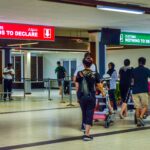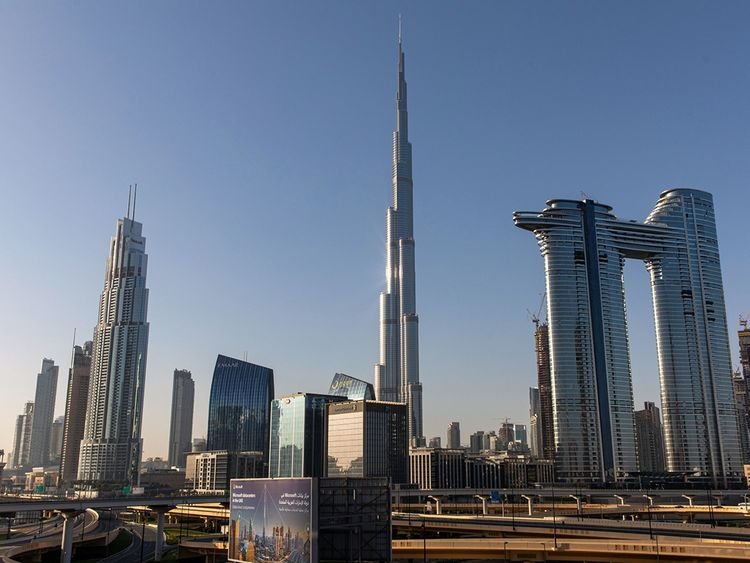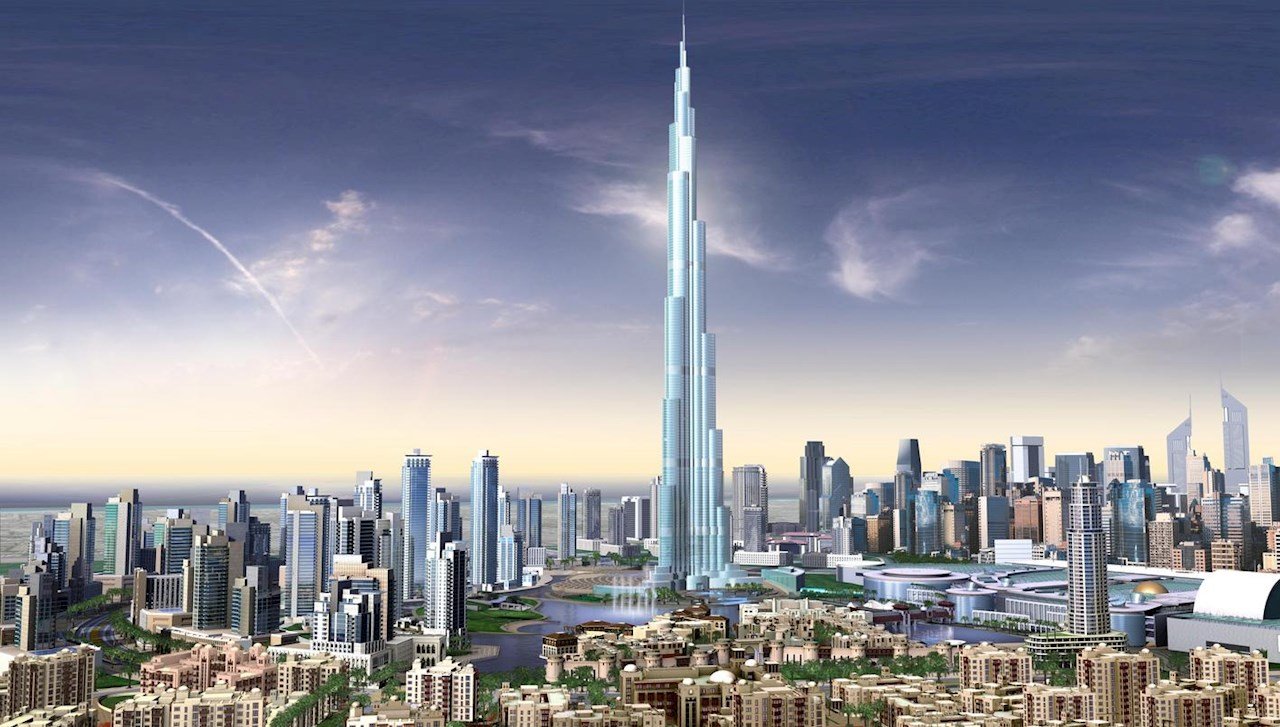Do you know 140 countries recognise Palestine in United Nations ?
Palestine was shown as a country on the world’s map till 1947 . Palestine with majority Muslim population was governed by British from 1922 to 1947 . In 1690 there were hardly 2000 Jews in Palestine’s territories. Till 1948 there was no country called Israel in the world’s map , but now there is no country call Palestine on the world map. Palestine’s who allowed Jews as a refugee during World wars , now is being controlled by same refugees with a country name called Israel.
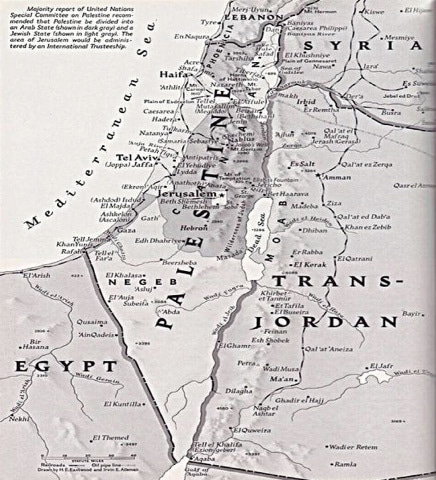
Palestine went through number of changes in administrating and was never in stable condition historically. During British rule the freedom struggle of Palestine started and rift between Jews and Muslim community .
British Mandate: After World War I, the League of Nations granted Britain a mandate over Palestine. The British Mandate lasted from 1920 to 1948. During this time, tensions between Arab and Jewish communities escalated, fueled by conflicting national aspirations. During the period between World War I and World War II, Jewish immigration to Palestine continued. The rise of Nazism in Europe and the persecution of Jews fueled increased immigration during the 1930s.
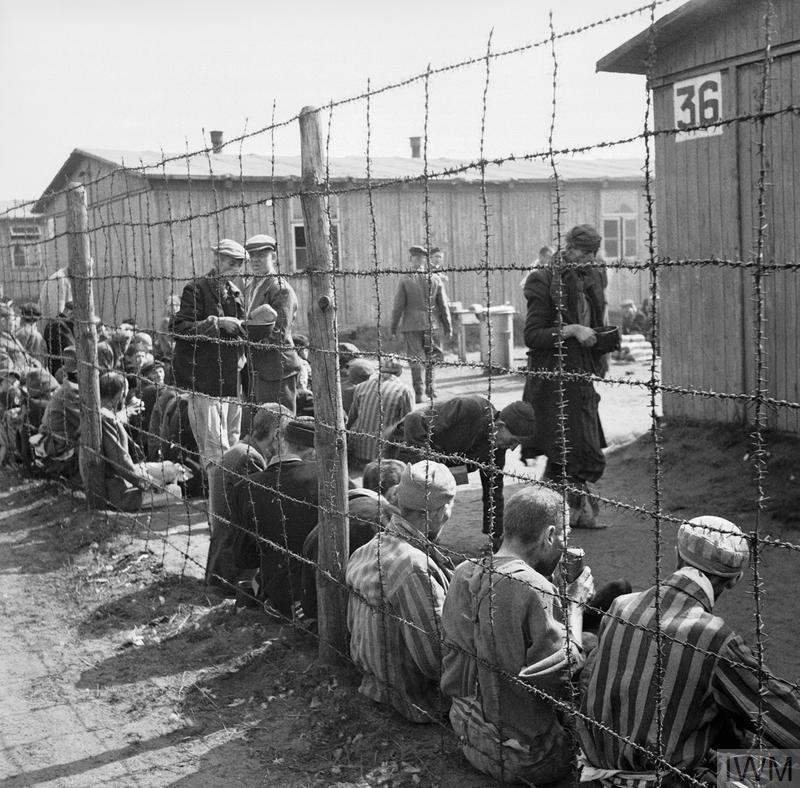
Holocaust and Post-World War II: The Holocaust during World War II resulted in the murder of six million Jews in Europe, prompting a surge of Jewish refugees seeking safety and a new beginning. This period saw significant illegal immigration to Palestine, as Jewish survivors sought to reach the Holy Land despite British restrictions.
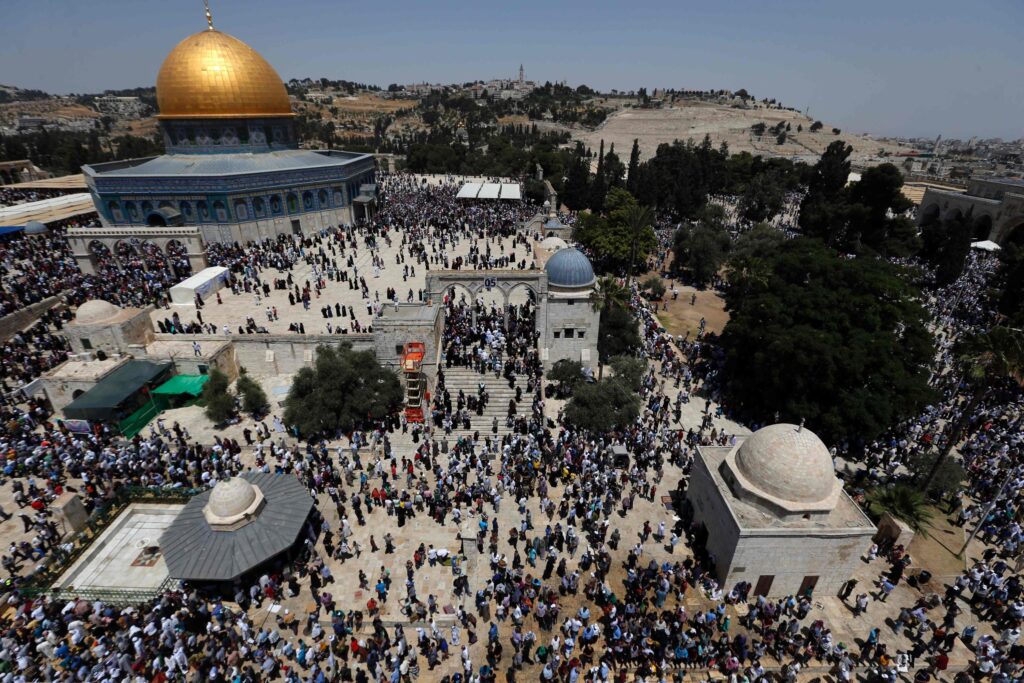
Pre-Statehood Era (1947-1948): In the lead-up to the establishment of the State of Israel in 1948, Jewish immigration to Palestine intensified. The United Nations partition plan of 1947 proposed dividing Palestine into separate Jewish and Arab states, prompting increased Jewish immigration and Arab opposition .
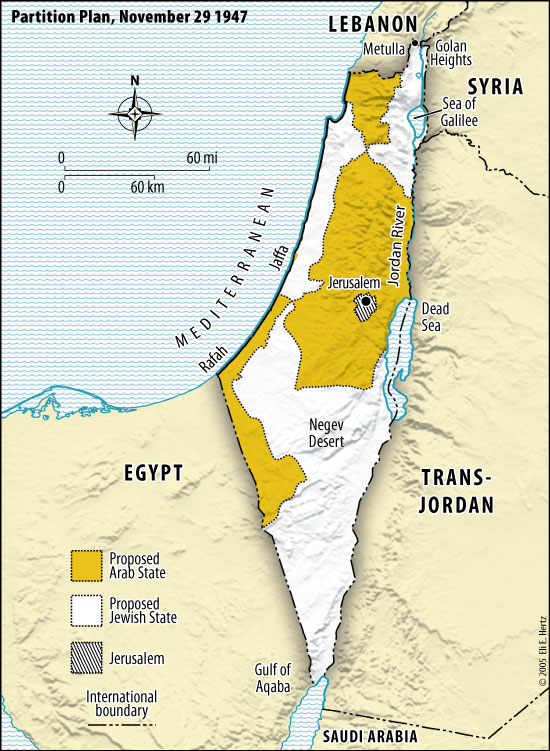
Partition and Israeli Independence: In 1947, the United Nations proposed a partition plan that would create separate Jewish and Arab states in Palestine, with Jerusalem as an international city. The plan was accepted by Jewish leaders but rejected by Arab leaders. This lead in to 1948 Arab-Israeli War. Following the war, Israel declared independence. At same time neighbouring Arab states intervened in support of Palestinian Arabs.
| Year | Palestine Population (majority Muslim) | Israeli Population (majority-Jews) | Total Population | Comments |
| 1690 | 230,000 | 2,000 | 232,000 | |
| 1948 | 1,300,000 | 630,000 | 1,930,000 | 700K Palestine fled to Jordan etc |
| 1960 | 1,700,000 | 1,200,000 | 3,100,000 | |
| 1967 | 1,340,000 | 2,400,000 | 3,740,000 | |
| 1975 | 1,6000,00 | 3,000,000 | 4,600,000 | |
| 1985 | 2,400,000 | 3,500,000 | 5,900,000 | Palestine declared independent in 1988 |
| 1995 | 3,600,000 | 4,500,000 | 8,100,000 | |
| 2000 | 4,400,000 | 4,900,000 | 9,300,000 | |
| 2023 | 5,500,000 | 9,000,000 | 14,500,000 | deadly Conflict |
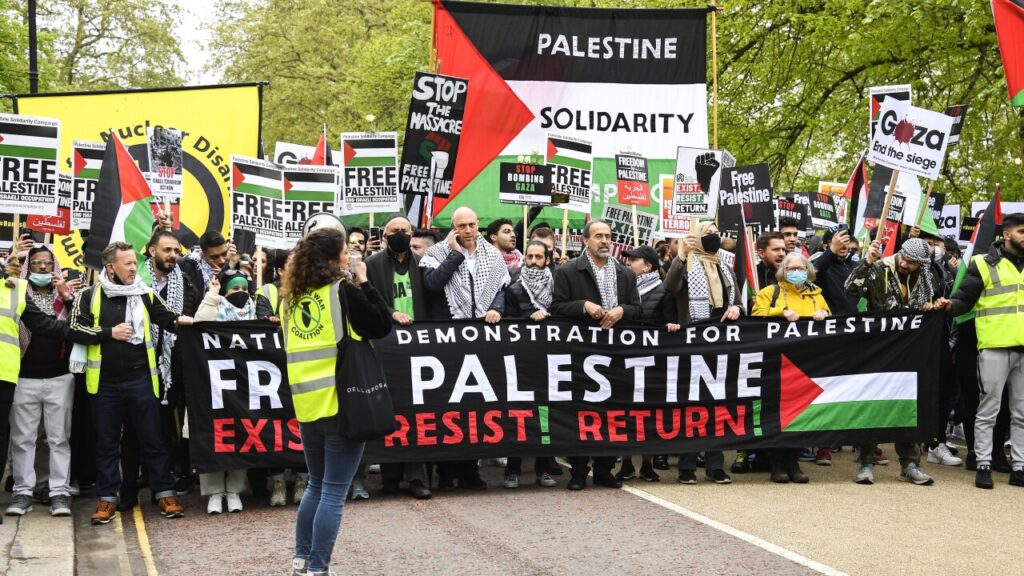
Palestinian-Israeli Conflict: The conflict between Israel and the Palestinians has been ongoing since the mid-20th century, marked by wars, uprisings, peace efforts, and negotiations. The core issues include borders, refugees, security, settlements, and the status of Jerusalem.
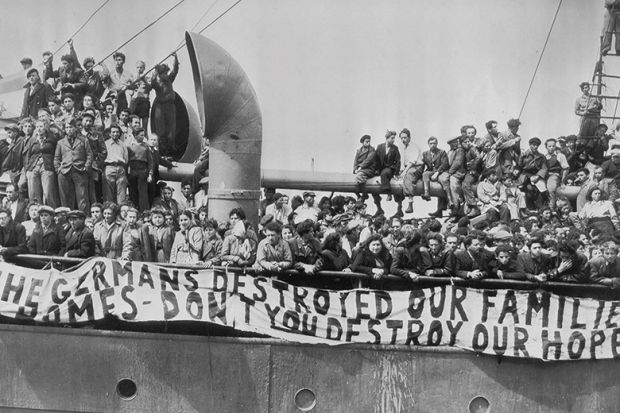
Jewish flooding Palestine : Overall, Jewish immigration to Palestine in the late 19th and early 20th centuries played a crucial role in shaping the demographics and development of the region, laying the groundwork for the establishment of the modern State of Israel in 1948 but fete of Palestine stand unresolved till today as Israel is eating their land year after year and denying the freedom of movement.
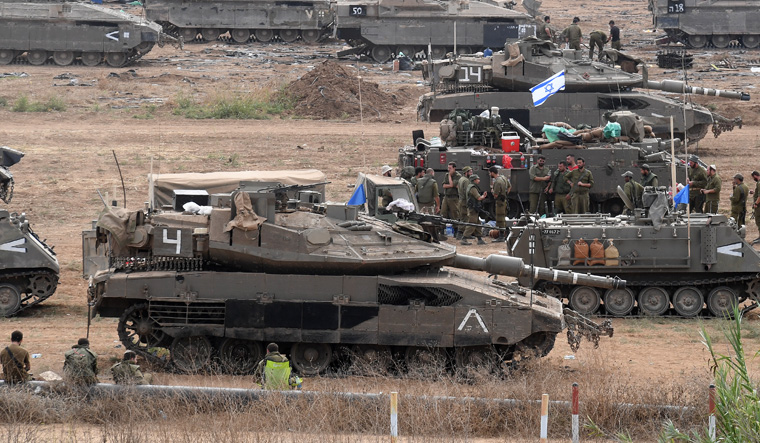
Israeli Army – Israel established its army, known as the Israel Defense Forces (IDF), shortly after the declaration of the State of Israel on May 14, 1948. The IDF was officially formed on May 31, 1948, merging various pre-state Jewish paramilitary organizations, such as the Haganah, Palmach, and Irgun. The decision to establish a unified military force was driven by the need to defend the newly declared state against Arab armies that had invaded Palestine following the rejection of the United Nations partition plan of 1947.
IDF played a central role in the 1948 Arab-Israeli War, also known as the War of Independence, which lasted until 1949. During this conflict, the IDF fought against the armies of neighboring Arab states, as well as local Palestinian militias.
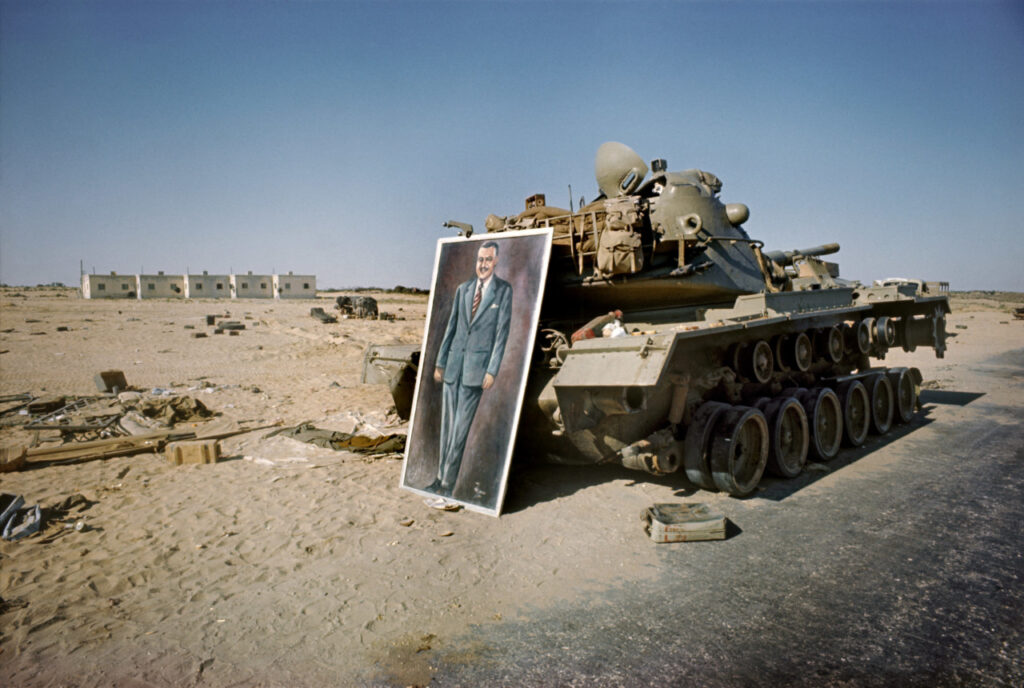
Six Day War in 1967 : The Six-Day War was a significant conflict between Israel and its neighbouring Arab states, primarily Egypt, Jordan, and Syria, which took place from June 5 to June 10, 1967. The war was a culmination of escalating tensions, military build-up, and regional rivalries in the years leading up to the conflict. Here’s an overview of the key events and outcomes of the Six-Day War:
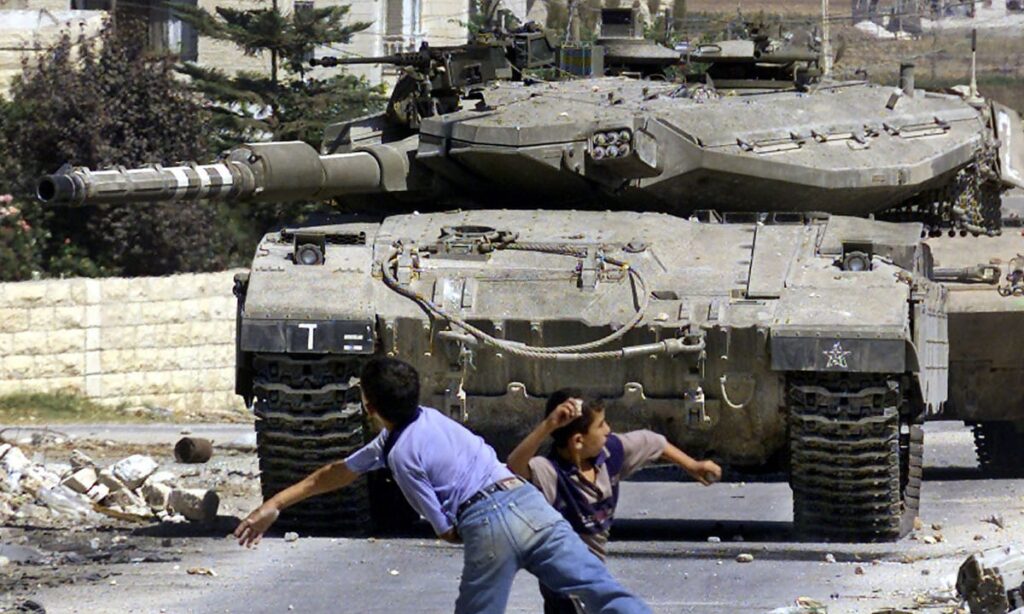
Tensions between Israel and its Arab neighbors had been high since the establishment of the State of Israel in 1948 and the subsequent Arab-Israeli conflicts. Tensions escalated further in the 1960s, particularly after Egypt’s President Gamal Abdel Nasser nationalized the Suez Canal in 1956 and the growing Palestinian fedayeen attacks against Israel.
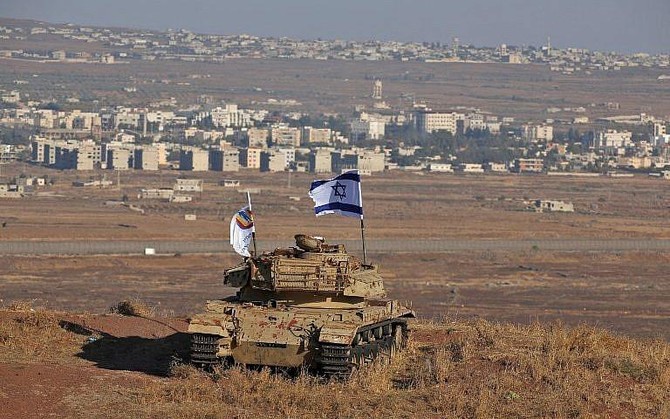
The immediate trigger for the war was the escalating crisis between Israel and Egypt over the closure of the Straits of Tiran to Israeli shipping, the expulsion of United Nations Emergency Force (UNEF) peacekeepers from the Sinai Peninsula, and the mobilization of Egyptian forces along Israel’s southern border
Israeli Pre-emptive Strikes: On June 5, 1967, Israel launched a preemptive strike, known as Operation Focus, targeting Egyptian airfields, destroying the bulk of the Egyptian Air Force on the ground. This initial strike gave Israel air superiority throughout the conflict.
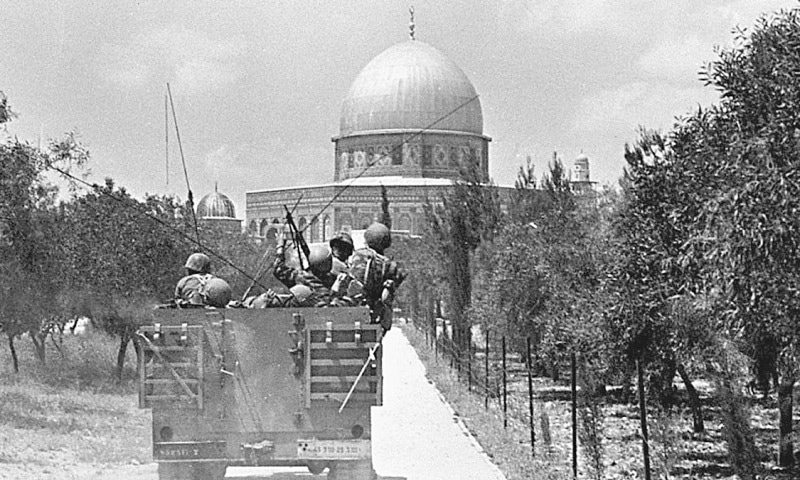
Ground Offensives: Following the successful airstrike, Israel launched ground offensives against Egypt, Jordan, and Syria. The IDF swiftly captured the Sinai Peninsula and the Gaza Strip from Egypt, the West Bank from Jordan, and the Golan Heights from Syria.
Occupation of Territories: The outcome of the war resulted in Israel gaining control of the Sinai Peninsula and the Gaza Strip from Egypt, the West Bank (including East Jerusalem) from Jordan, and the Golan Heights from Syria. This significantly altered the geopolitical landscape of the region and had far-reaching implications for the Israeli-Palestinian conflict.
The rapid Israeli victory shocked the world and reshaped regional alliances. Israel’s pre-emption was initially condemned by some Western powers, but Israel’s victory led to increased support and strategic partnerships with Western countries.
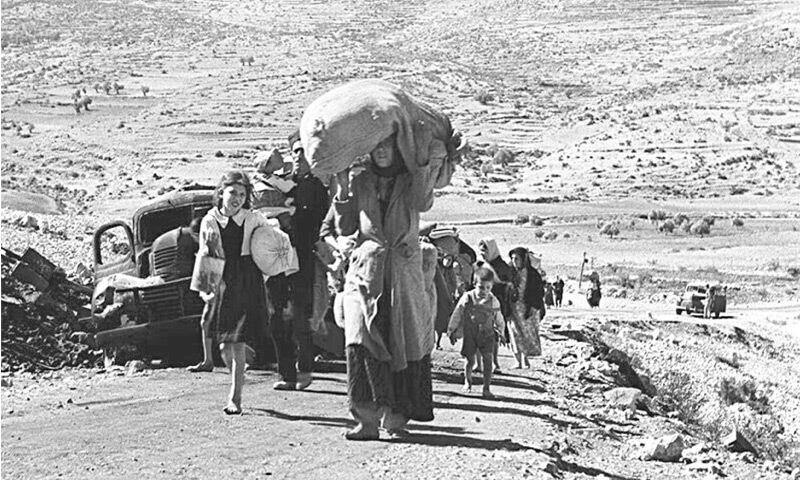
Aftermath of 6day War : The Six-Day War had profound and long-lasting consequences for the Middle East. It led to the displacement of hundreds of thousands of Palestinians, the continued Israeli occupation of territories captured in the war, and subsequent conflicts, including the Yom Kippur War of 1973 and ongoing tensions between Israel and its Arab neighbours and ongoing conflicts.
Following the war, the IDF continued to play a crucial role in defending Israel’s borders, maintaining security, and participating in subsequent conflicts and military operations in the region. Today, the IDF remains the military force of the State of Israel, responsible for safeguarding the country’s sovereignty and security , Hamas has no challenge to them.

| Year | Area under Palestine | Area under Israel | Total area – Km2 | Comments |
| 1947 | 11,700 Km2 | 14,900 Km2 | 22,145 Km2 | Palestine area was captured in War |
| 2023 | 6,020 km2 | 21,640 km2 | 27,660 Km2 | Gaza & west Bank = 6,020 Km2 |

Displacement : The issue of Palestinian displacement, often referred to as the Palestinian exodus or Nakba (Arabic for “catastrophe”), is a complex and contentious topic with various perspectives and interpretations. The displacement of Palestinians from their homes and land occurred primarily during the 1948 Arab-Israeli War, which followed the declaration of the State of Israel. Several factors contributed to the displacement of Palestinians during this period:
Violence: The 1948 Arab-Israeli War involved significant violence and military conflict between Jewish and Arab forces. Many Palestinians fled their homes due to the fear of violence, direct attacks, or orders from Arab leaders to evacuate to avoid harm.
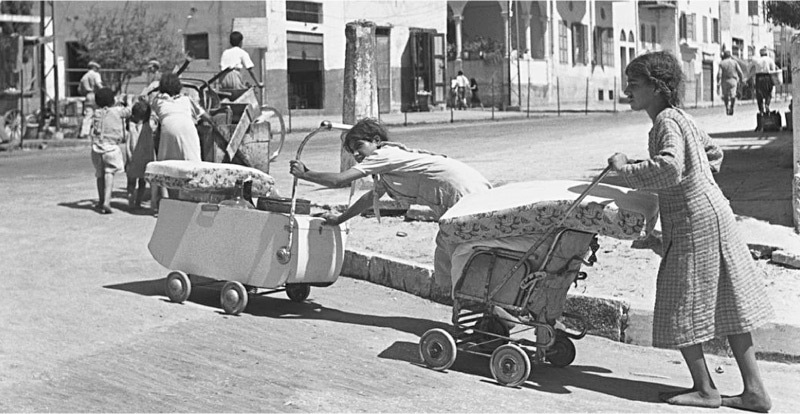
There are documented cases of Palestinian villages and towns being forcibly evacuated by Israeli forces during the 1948 war. Some Palestinians were expelled from their homes by Israeli military operations, while others left under duress or as a result of military tactics such as intimidation or demolition of villages. The atmosphere of war, uncertainty, and fear played a significant role in the displacement of Palestinians. Many fled their homes in anticipation of violence or due to rumors of atrocities committed by Israeli forces. The establishment of the State of Israel in 1948 led to a large influx of Jewish immigrants and the creation of a Jewish-majority state in a region with a significant Arab population. Some argue that the displacement of Palestinians was part of a broader Zionist strategy to create a Jewish state with maximum territory and minimal Arab presence.
Long-Term Consequences: The displacement of Palestinians during the 1948 war resulted in the creation of a Palestinian refugee population, which remains a central issue in the Israeli-Palestinian conflict to this day. Many Palestinians were unable to return to their homes and became refugees, leading to generations of displacement and the ongoing refugee crisis. Millions of Palestine’s are stateless as on today.
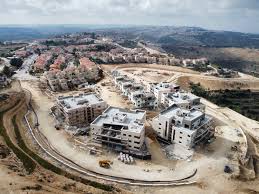
Israeli Settlements : The issue of Israeli settlements in the occupied Palestinian territories is a highly contentious and complex aspect of the Israeli-Palestinian conflict. In background, Israel captured the West Bank, including East Jerusalem, Gaza Strip, and Golan Heights, during the Six-Day War in 1967. Since then, Israel has built settlements in these areas, which are considered illegal under international law. The Fourth Geneva Convention prohibits the transfer of civilian populations into territories occupied during conflict. Some of the territories’ belongs to Palestine.
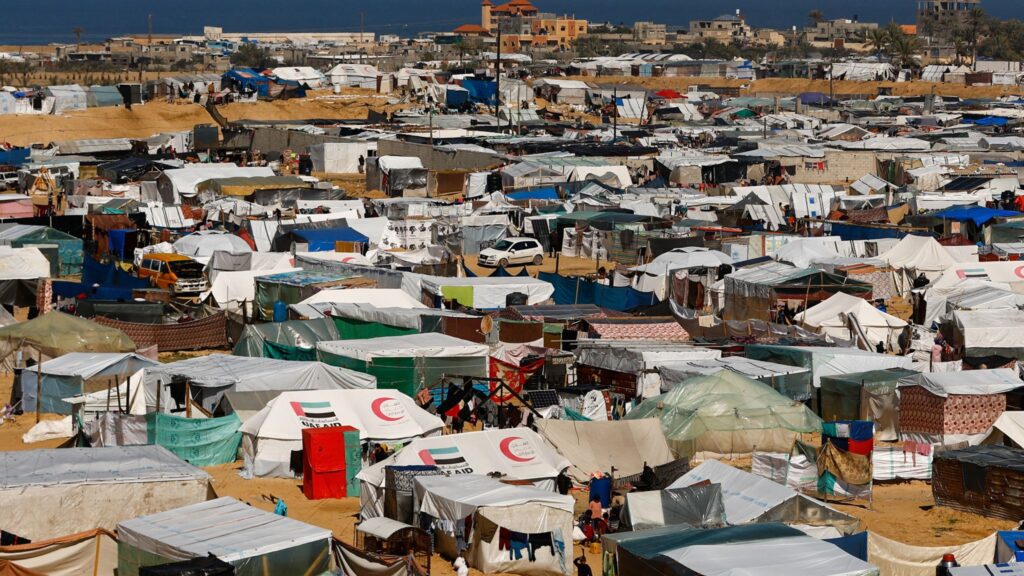
Impact on Palestinians: The expansion of Israeli settlements has significant implications for Palestinians living in the occupied territories. It has led to the confiscation of Palestinian land, restrictions on movement, and the fragmentation of Palestinian communities. Settlements also often entail the demolition of Palestinian homes and the displacement of Palestinian families.
The vast majority of the international community considers Israeli settlements in the occupied territories to be illegal under international law, including the United Nations, the International Court of Justice, and numerous countries. Israel disputes this interpretation, arguing that the legal status of the territories is disputed rather than occupied.
Peace Process: The expansion of Israeli settlements has been a major obstacle to peace efforts between Israel and the Palestinians. Settlement construction undermines the viability of a future Palestinian state by fragmenting the territory and making it difficult to establish contiguous Palestinian sovereignty.
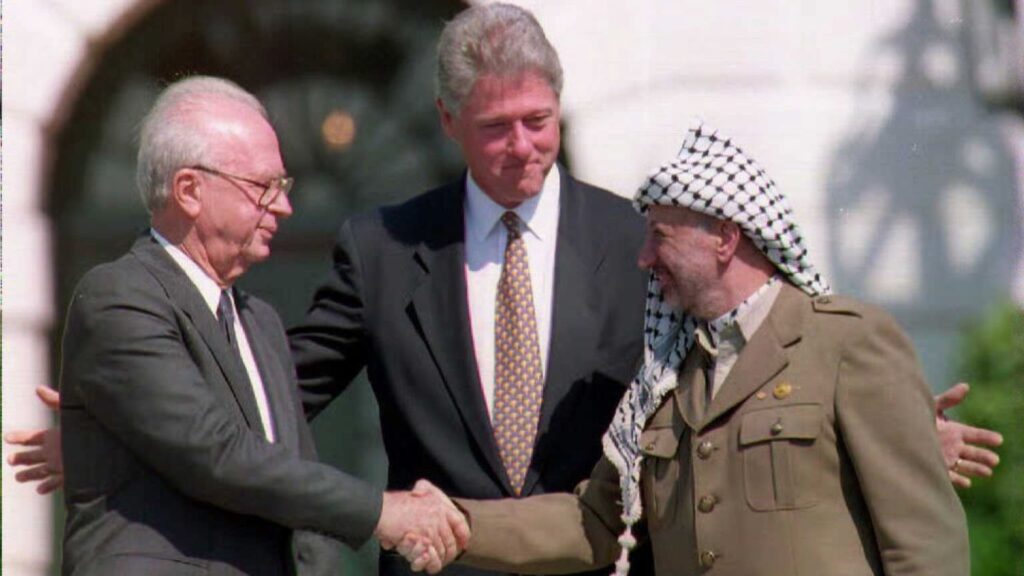
Peace Negotiations: Settlements have been a contentious issue in peace negotiations between Israel and the Palestinians. The Oslo Accords of the 1990s addressed the issue of settlements, calling for a freeze on settlement construction. However, settlement expansion has continued, undermining the prospects for a negotiated two-state solution. In 1980 Israel forcefully merged East Jerusalem ( part of Palestines territory ) with west Jerusalem as a unified capital of Israel .
The international community, including the United Nations, the European Union, and various governments, has repeatedly called for a halt to Israeli settlement construction and the removal of existing settlements. However, efforts to halt settlement expansion have had limited success.
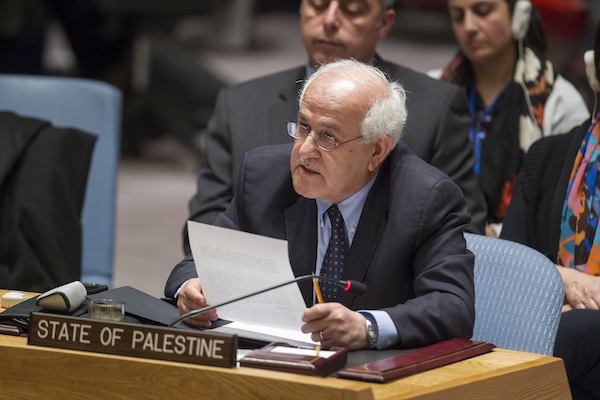
PLO : The Palestine Liberation Organization (PLO) is a political and paramilitary organization founded in 1964 with the aim of creating an independent Palestinian state. Its initial objective was to represent the Palestinian people and advocate for their rights, including the right of return for Palestinian refugees and self-determination.
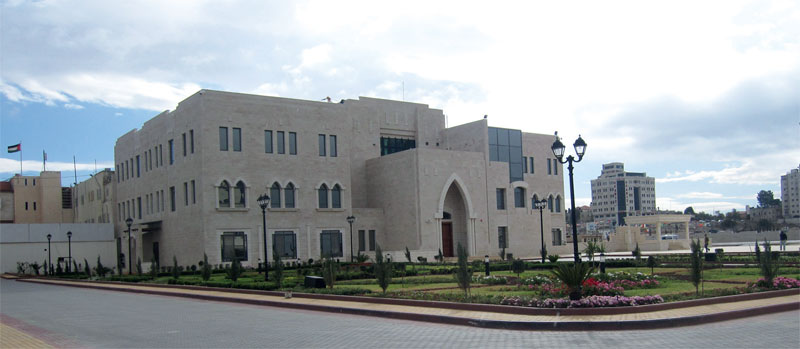
PLO was led by various leaders over the years, including Yasser Arafat, the PLO has been a central player in the Israeli-Palestinian conflict. It has engaged in armed struggle, diplomacy, and political negotiations in pursuit of its goals. The PLO gained international recognition as the legitimate representative of the Palestinian people and was granted observer status at the United Nations in 1974.
The Oslo Accords of the 1990s led to the establishment of the Palestinian Authority (PA) as an interim self-governing body in parts of the occupied Palestinian territories, but the PLO remains the overarching political entity representing the Palestinian people in negotiations with Israel and on the international stage.

Yasser Arafat : Yasser Arafat was a prominent Palestinian leader and one of the most recognizable figures in the Palestinian national movement. Born in Cairo in 1929, he became involved in Palestinian politics in the 1950s and later emerged as the chairman of the Palestine Liberation Organization (PLO) in 1969, a position he held until his death in 2004.

Yasser Arafat was instrumental in raising international awareness of the Palestinian cause and securing recognition for the PLO as the legitimate representative of the Palestinian people. He led the organization through various stages of the Israeli-Palestinian conflict, including armed struggle, diplomatic negotiations, and peace initiatives. PLO declared Palestine as independent country in Nov 1988 and 78 country recognize it .
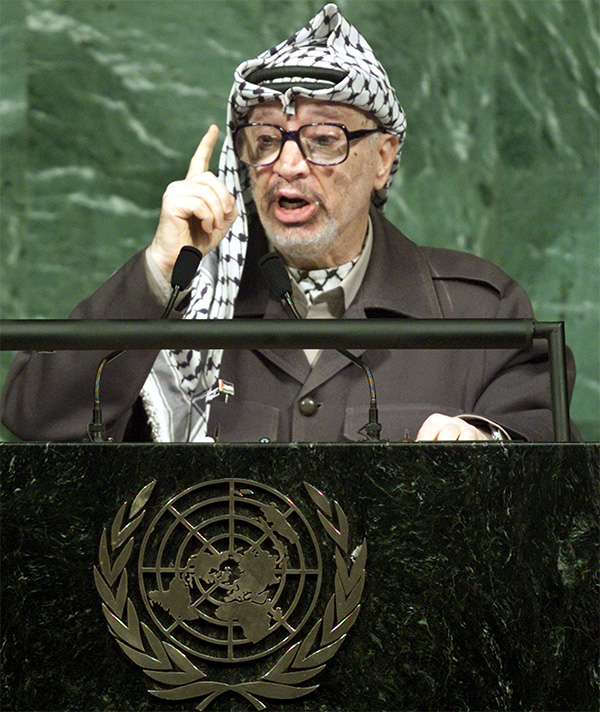
During his leadership, Arafat faced criticism from both within and outside the Palestinian movement. Many questioned his willingness to compromise in peace negotiations with Israel. One of the most significant moments of Arafat’s career was the signing of the Oslo Accords in 1993, which established a framework for peace negotiations between Israel and the Palestinians. For his role in the peace process, Arafat, along with Israeli Prime Minister Yitzhak Rabin and Foreign Minister Shimon Peres, was awarded the Nobel Peace Prize in 1994.
Arafat’s legacy remains a subject of debate. While many Palestinians regard him as a symbol of their struggle for statehood and self-determination, others view his leadership as marked by missed opportunities and compromises. His death in 2004 create a big vacuum on Palestine representation on world stage.
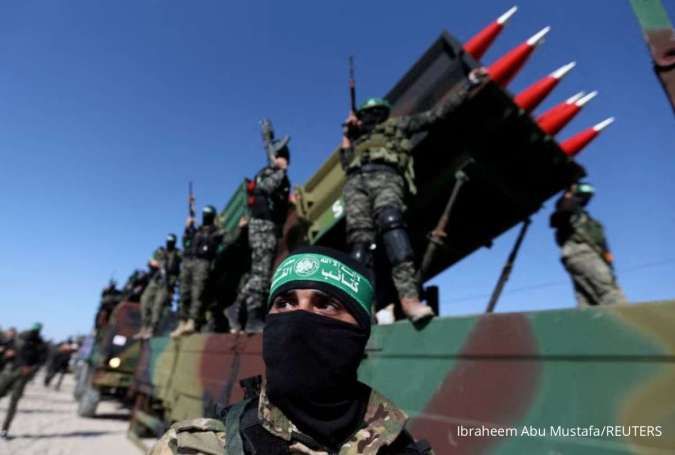
Hamas : Hamas is a political party which plays role to administrate and defend Palestinians in Gaza . Hamas has a multifaceted role in Palestinian politics and society. It functions as a political party, a social service provider, and a militant organization.
Politically, Hamas competes in Palestinian elections and holds significant influence, particularly in the Gaza Strip. It won the legislative elections in 2006 and subsequently formed a government. Despite international criticism and efforts to isolate it, Hamas maintains popular support in certain segments of Palestinian society, particularly for its stance against Israeli occupation and perceived resistance against oppression.
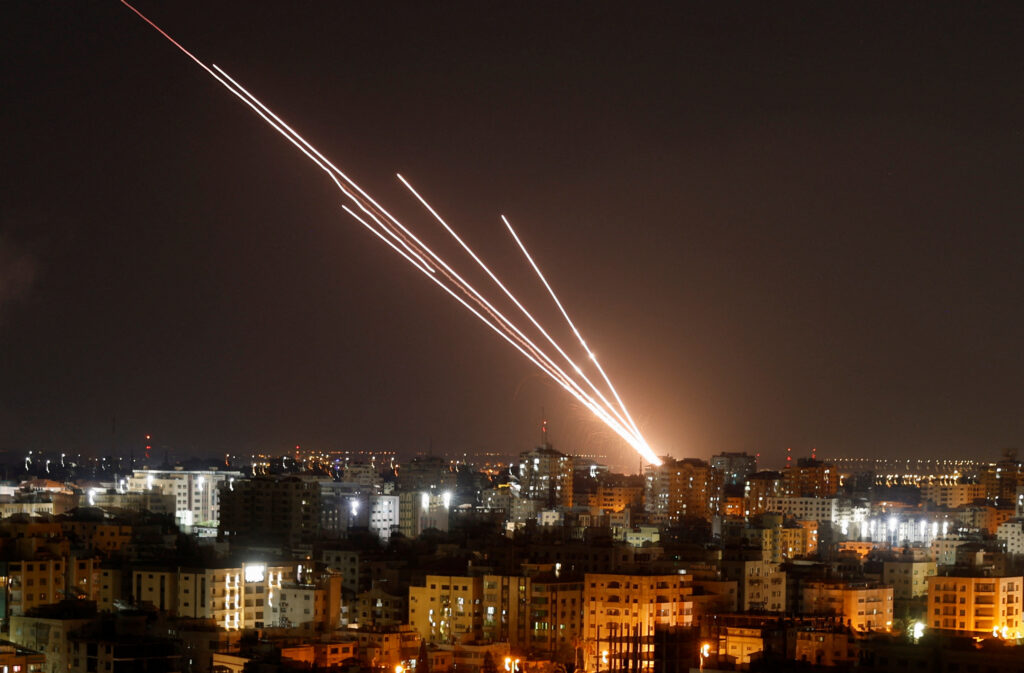
Socially, Hamas operates a wide range of social service programs, including schools, hospitals, and charities, which provide aid to Palestinians in need. These efforts contribute to its popularity and help solidify its grassroots support base. Militarily, Hamas controls an armed wing, which engages in guerrilla warfare and conducts attacks against Israel. These attacks have included rocket launches, suicide bombings, and other forms of violence.
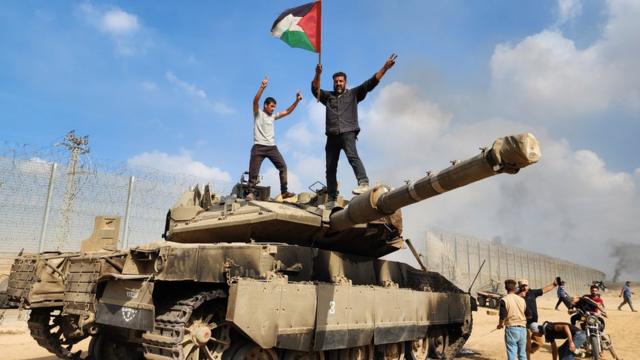
Hamas invasion of Israel on 7 October 2023 : Hamas and several other Palestinian militant groups launched coordinated armed incursions from the Gaza Strip into the Gaza envelope of southern Israel, the first invasion of Israeli territory since the 1948 Arab–Israeli War. Hamas and other Palestinian armed groups named the attacks Operation Al-Aqsa Flood . The attacks consequently started the ongoing Israel–Hamas war.
The attacks began early on 7 October with a barrage of at least 3,000 rockets launched against Israel and vehicle-transported and powered paraglider incursions into Israel. Hamas fighters breached the Gaza–Israel barrier, attacking military bases and massacring civilians in Gaza envelope Kibbutz settlements, including in Be’eri, Kfar Aza, and Nir Oz, and at the Nova music festival. The attackers killed 1,139 people , 695 Israeli civilians (including 36 children), 71 foreign nationals, and 373 members of the security forces. About 250 Israeli civilians and soldiers were taken as hostages to the Gaza Strip, including 30 children, with the stated goal to force Israel to exchange them for imprisoned Palestinians.
Hamas said its attack was in response to the continued Israeli occupation of the Palestinian territories, the blockade of the Gaza Strip, the expansion of illegal Israeli settlements, rising Israeli settler violence, and recent escalations.
Some Arab and Muslim countries blamed Israel’s occupation of the Palestinian territories as the root cause of the attack. The day was labeled the bloodiest in Israel’s history and the deadliest for Jews since the Holocaust. Some have called the attack a genocidal massacre against Israelis.
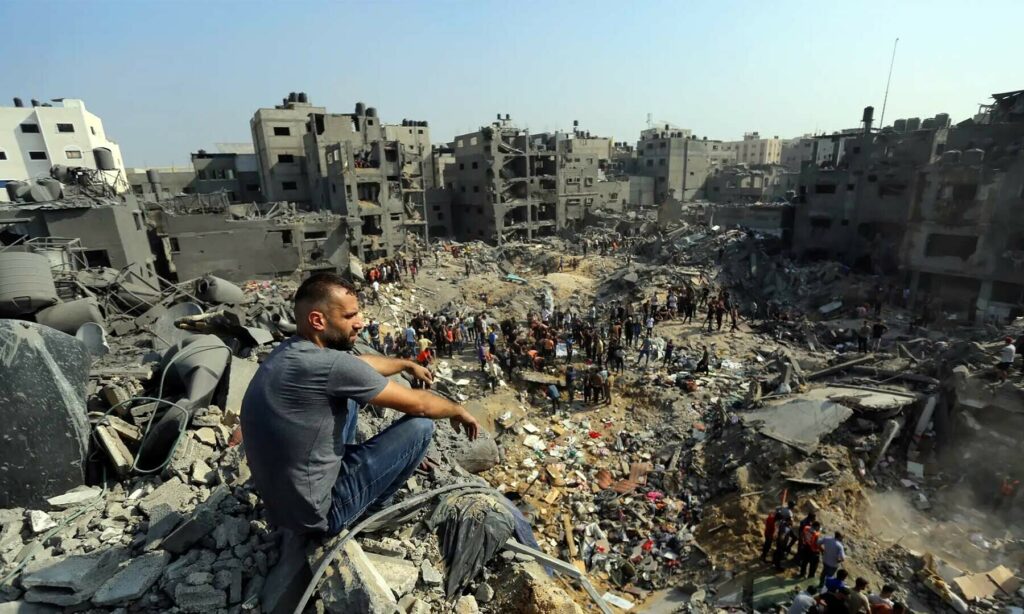
Israel response to 7th Oct Attack : Israel army / Air force / Navy IDF attacked Gaza to flush out Hamas and have been using ground & Air attack using Tanks , fighter jet aand drones . In the name of capturing Hamas men and getting back kidnapped Israelis , they have attacked residential houses , Hospital , School , Colleges , Universities and Ambulance . This resulted in Killing of over 35,000 Palestinians including over 12,000 Children . Aprox 90% killed are Civilians . Over 1.7 Million peoples ( 85% of Gaza population ) are displaced in Gaza and are forced to live in tents with shortage of Food , water , electricity and medicine . Al efforts by world leaders / UNO for ceasefire has been throttled by Israeli govt and Veto by USA in United Nation Assembly. As on End March 24 Palestine’s are still being killed by Aerial bombing in Gaza .

The Conflict between Palestine and Israelis has also spread in other countries. Iraq , Iran , Syria , Lebanon and Yemen who support formation of Palestine as a country within Israel are in open confrontation with Israelis who is bombing and counter bombing each other on regular interval . Israel is surviving with Military and money support of USA , UK and other NATO member.
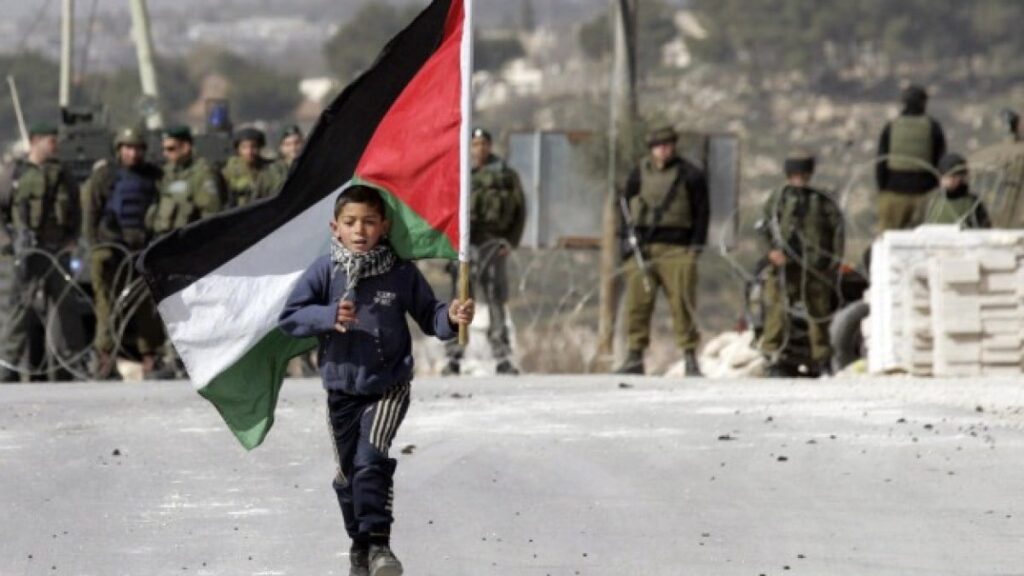
Bottom Line : Palestine which was established as a country in 1948 same year of formation of Israelis is being denied a right of an independent country by crooked international politics . In the back ground western countries do not want Palestine’s as a sperate independent state . However these countries do a lip services in United Nation’s Assembly for early settlement of dispute and Independent Palestine , which I don’t foresee going to happen in the current circumstances.

15 million people of Palestine’s origin will go on suffering and live their life without having their own country. This includes 5.0 million inside Israeli occupied area , 6.0 million living as a refugee in Jordan , Syria , Egypt , Lebanon and rest in other countries. I have many colleagues who belongs to Palestine but are stateless despite their country is recognised by 140 countries asper Unite Nation record. In my opinion the partition map finalised in 1948 for land sharing should have been accepted by Palestine’s.
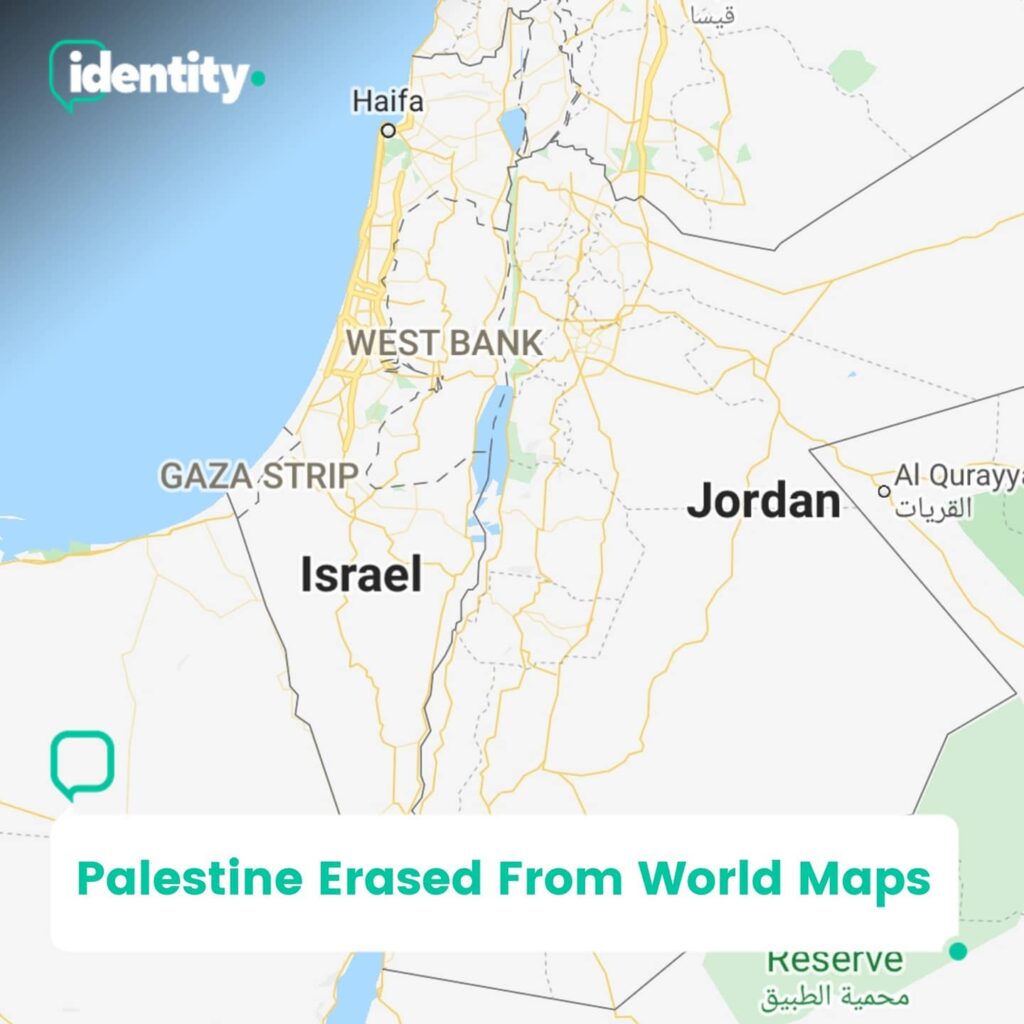
Refugee (Jews) arriving at one time with the mercy of local Palestine’s , have forcefully become the owner of the land and created a country by naming the captured land as Israel . Israel is putting all possible obstacles for Palestine’s not to have an independent state.

